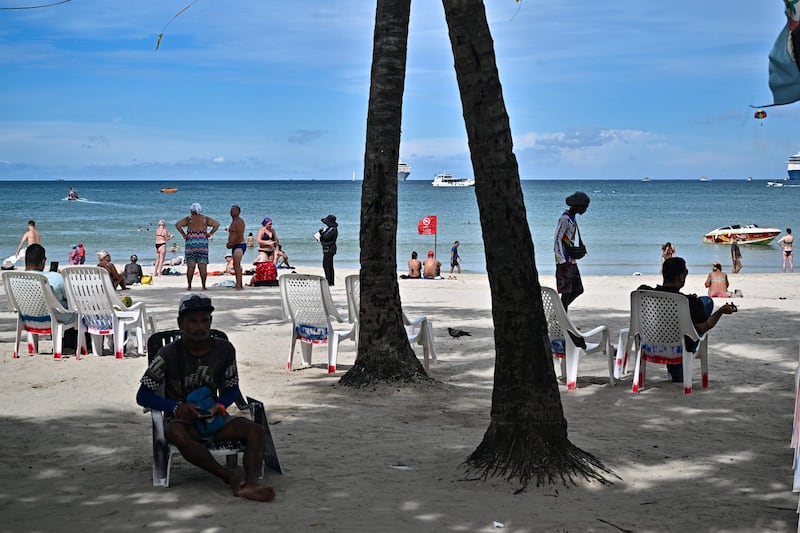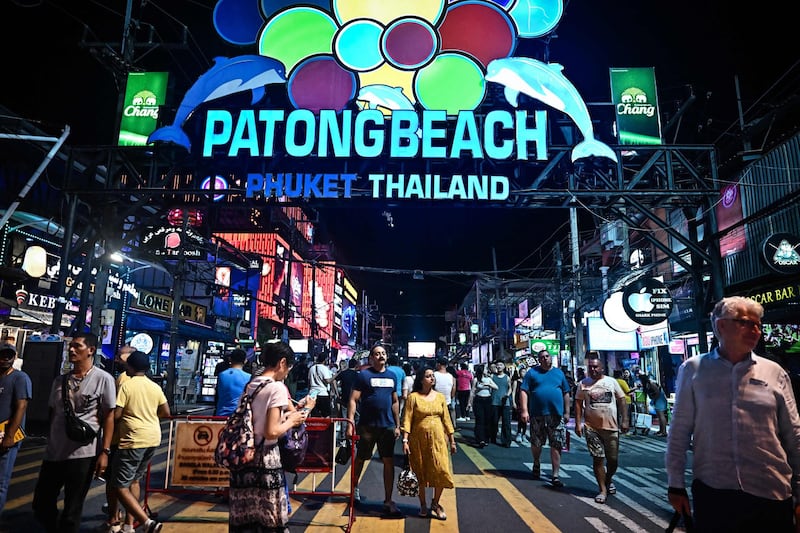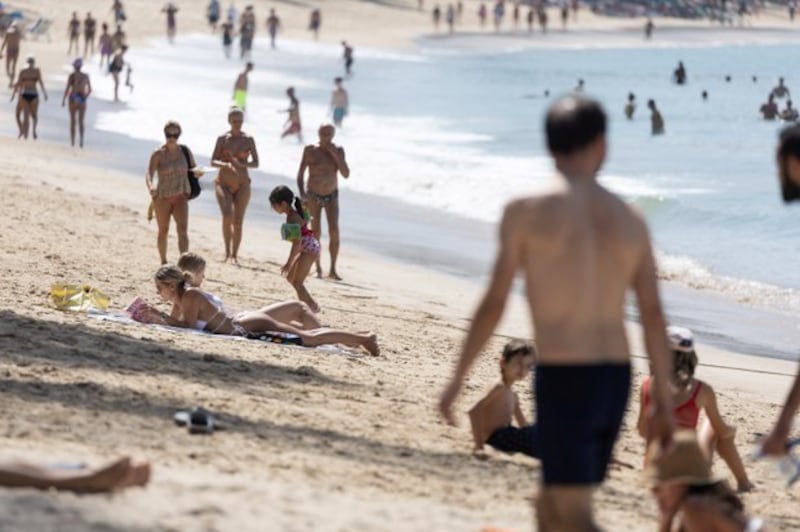Police on the Thai holiday island of Phuket have charged more than 100 people, including 67 Russians, suspected of breaking business laws in a crackdown on the multi-million dollar property sector that has seen a surge in prices since Russians flocked in after their government's invasion of Ukraine.
The tourism ministry said 767,210 Russians arrived in Thailand in the first four months of the year, a 12.43% increase over last year when 1.61 million Russians visited.
Many of those Russians head to Phuket for its beaches and nightlife and police say nearly 60,000 Russians are living on the island on Thailand's Indian Ocean coast. Some partsof Phuket feel like a Black Sea resort with Russians soaking up the sun on the beach while nearby signboards in Cyrillic advertise Russian restaurants, bars and other businesses including real estate agencies and tour companies.

But that’s a problem for some Thais, angry with what they see as Russians taking jobs and opportunities without proper work visas and business permits.
Police said that in response to complaints the government called for a crackdown, and they launched their raids last month on hundreds of companies and property realtors. Police said they had then compiled a list of 135 people, 67 of them Russian, and as many as 300 companies suspected of breaking the law.
"Phuket residents complained to the prime minister about a land and residential grab by foreigners causing hardship, so we ordered the operation,” Police Lt. Gen. Jirapob Puridej, chief of the Central Investigation Bureau, told a press conference at the bureau's Bangkok headquarters on Friday.
None of the suspects had been detained but they had been summoned to appear in Bangkok to hear charges of breaking business laws, police said.
Police declined to identify most of the suspects, citing privacy protection. Radio Free Asia was not able to track down any of them for comment.

Col. Krit Woratat, a senior officer at the Economic Crime Suppression Division, who organized the raids, told RFA that the investigation had revealed a Thai accountant in league with a Russian to set up joint ventures without legal requirements, and getting work permits through those bogus companies. Jobs in services sectors are almost exclusively reserved for Thais.
Thailand’s Foreign Business Act 1999 sets out jail of up to three years and a fine of 2 million baht (US$54,500) for those convicted of violations.
Property and business laws are restrictive in Thailand and any foreigner hoping to start a business or find a job usually has to go through a tortuous application process.
Foreigners can buy flats but can not own land. They can set up a joint venture with a Thai partner but are not allowed to hold more than a 49% stake.
In 2023, more than 1,600 Russian-linked companies were registered in Phuket compared with an average of 30 in each of the previous seven years, police said.

Scaring off investment?
According to the Real Estate Information Center, land prices in Phuket have risen up to 40% this year, much higher than the national average, and house and condominium sales to the tune of 31.5 billion baht (US$859 million) are expected.
Police seized deeds for land and condominiums worth 1.2 billion baht (US$33 million) in their raids, along with 318 million baht (US$8.7 million) in cash deposits and 108 work permits, which were being checked. Bank accounts suspected of being used to defraud Thai customers with investment scams were frozen, police said.
One disgruntled Phuket native, who asked that he be identified as Chai, welcomed the police action.
"It's as if they own the country," Chai said of Phuket's Russian visitors.
"They've bought up so much land, pushed up property prices, and some unruly Russians cause social disorder," said Chai, who owns a small retail business. "The government has to purge all illegal activities."
But some Thais are worried that the raids could scare off foreign investment.
Maetapong Upatising, president of the Phuket Real Estate Association, said Russians were the top investors in Phuket’s real estate this year, followed by Chinese and French, and the authorities should not ruin the “investment sentiment”.
“Amid competition, land prices rise and so do shady businessmen,” Maetapong told RFA. “Actually, our association has called for a government investigation into fraud but it should not put off foreign investment.”
Maetapong said some rich Russians had been investing at the top end of the market, buying luxury villas that range in price from around 25 million baht ($730,000) and up. The well-off can secure long-term resident visas that let them stay for years through an “elite visas” scheme, he said.
Before COVID-19, Thailand welcomed a record 40 million tourists, with Chinese accounting for more than a quarter. The sector has been recovering - there were more than 28 million visitors last year - but not as quickly as many would hope with Chinese tourists yet to flock back.
Since November, Thailand has included Russians tourists in a visa exemption scheme in a bid to boost arrivals. The scheme has been extended to July.
Edited by Mike Firn.
